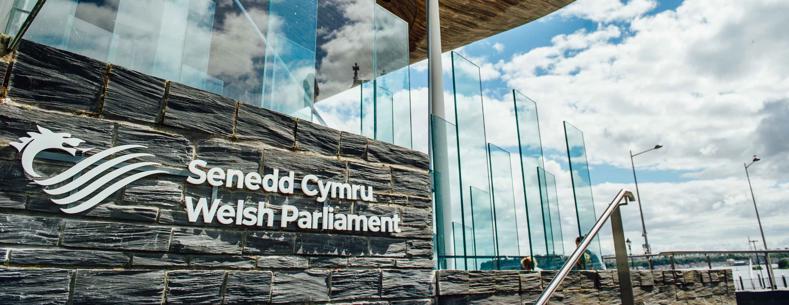On 9 July 2024, the First Minister set out the Welsh Government’s legislative commitments for the rest of this Senedd term (which is due to end in May 2026). This was Vaughan Gething’s first legislative programme statement since becoming First Minister in March 2024.
Before 2026, the Welsh Government has committed to introducing at least 10 new Bills. Legislation will cover areas including transport, the environment and the visitor economy.
This article looks at the Welsh Government’s proposals in more detail and how opposition leaders have responded.
The Welsh Government’s legislative programme
In his statement to the Senedd, the First Minister set out the legislation that the Welsh Government will introduce before the next Senedd election in 2026.
The First Minister confirmed that a long-awaited Bus Bill will be introduced to “radically reshape the public transport system”.
In February 2024, the former First Minister, Mark Drakeford MS, confirmed that the Bill, would introduce “a planned, agreed, stable and subsidised system of bus transport” ensuring that funding is provided for “socially necessary” routes.
The Welsh Government will also consult on a draft Taxi and Private Hire Vehicles Bill in this Senedd term. This Bill, which the Welsh Government originally planned to introduce in the last Senedd, will aim to modernise taxi and private hire vehicle licencing to “create a safer and fairer sector”. A white paper consultation on the matter ended in June 2023.
The statement included two Bills aimed at protecting and safeguarding the environment.
An Environmental Principles and Biodiversity Bill will “establish a statutory environmental governance body for Wales, embed environmental principles into Welsh law and introduce a legal duty with targets to protect and restore biodiversity”.
Proposals for the environmental governance body include mechanisms to hold the Welsh Government and public bodies to account on implementation of environmental law, replacing previous EU functions. The Welsh Government first committed to legislate on this issue in 2018. While statutory governance bodies have been established for England and Northern Ireland, and Scotland, interim arrangements are still in place in Wales.
In September 2023, the Senedd’s Climate Change, Environment and Infrastructure Committee concluded it will be an “unforgivable failure of this Welsh Government if the new body is not fully operational before the end of its term in office”.
The Welsh Government also intends to introduce a Disused Tips (Mines and Quarries) Bill to establish a “sustainable, fit-for-purpose regulatory regime for disused tip safety”.
A white paper consultation on this issue closed in August 2022 and the Welsh Government made commitments to action on tips in its legislative statements in 2022 and 2023.
In March 2024, the Welsh Government confirmed that the Bill would be introduced in autumn 2024.
The First Minister announced that the Welsh Government will introduce a Homelessness Bill to “help people remain in their homes” and focus on “prevention and early intervention”.
A white paper consultation on the Welsh Government’s proposals ended in January 2024.
In May 2024, the Cabinet Secretary for Housing, Local Government and Planning, Julie James MS, said that the Welsh Government will be “bringing forward a Bill shortly…to transform the homelessness system in Wales”.
The First Minister also committed to a Building Safety Bill aimed at reforming “the occupation and ongoing management of multi-occupied residential buildings” and addressing fire safety issues.
The First Minister said that the Bill will extend changes made through secondary legislation that came into force in April this year.
As part of its plans to overhaul the system for building safety, the Welsh Government established the Welsh Building Safety Programme under the Cooperation Agreement.
The Welsh Government says it will introduce legislation to give local authorities powers to introduce a Visitor Levy. This would be charged on overnight stays in that area. The First Minister said that money raised through the levy would “support tourism, helping our communities and preserving the beauty of Wales for future generations”.
The Welsh Government estimates that the earliest a visitor levy could be in place in any part of Wales is 2027.
The First Minister also committed to bring forward a Visitor Accommodation (Regulation) Bill to “establish a register of visitor accommodation and enable providers to demonstrate compliance with safety requirements”. The First Minister said that this will “enhance the visitor experience” by ensuring accommodation meets required standards.
The Welsh Government’s programme to improve the accessibility of the law will continue in this legislative programme, with two Bills expected before the end of this Senedd term.
The First Minister confirmed that a Legislation Bill will be introduced to “remove obsolete and spent provisions from the statute book and formalise the system of making and publishing Welsh statutory instruments”. A consultation on a draft Bill on statute law repeals ended in January 2023.
The Welsh Government also intends to introduce a Bill to consolidate planning law to “simplify and modernise the law in this area” towards the end of this Senedd term.
This would be the second consolidation Bill considered in this term, after the Senedd agreed the Historic Environment (Wales) Act 2023.
What other Bills could we expect?
The Welsh Government has also committed to support legislation to strengthen the accountability of Members of the Senedd.
This includes both introducing a recall mechanism for Senedd Members and disqualifying Members and candidates who are found guilty of deliberate deception.
The First Minister said that the Welsh Government shares the Senedd’s ambition to introduce a recall mechanism and “stands ready to support that work”. On deliberate deception, the First Minister confirmed that the Welsh Government is “committed to enable legislation” on this matter.
The Standards of Conduct Committee is currently considering these issues as part of its inquiry into individual member accountability. The First Minister said that the Welsh Government is looking forward to the recommendations of the Committee.
The Welsh Government has previously committed to develop legislation during this Senedd term to establish a new system for devolved tribunals in Wales. A consultation on the Welsh Government’s proposals ended in October 2023.
When asked about the timeline for the introduction of this legislation, the First Minister said that a Bill “may come to at the end of this term if we can deliver all other parts of the programme”.
Reaction from opposition leaders
Leader of the Welsh Conservative group, Andrew RT Davies MS, was critical of the low number of Bills included in the statement. He pointed out that since the last Senedd election in 2021 only 13 Senedd Bills have been brought forward, compared to 43 in the Scottish Parliament and 165 in the UK Parliament in the same period.
Leader of Plaid Cymru, Rhun ap Iorwerth MS, continued this theme, stating that in his opinion the people of Wales “need and want more than we have in this programme”.
What progress has the Welsh Government made in the last 12 months?
The Welsh Government publishes annual reports on its legislative programme; the most recent report was published on 9 July 2024. Senedd Members will have the chance to debate this report and the Welsh Government’s legislative actions and commitments more generally on 16 July 2024.
Article by Josh Hayman and Adam Cooke, Senedd Research, Welsh Parliament






